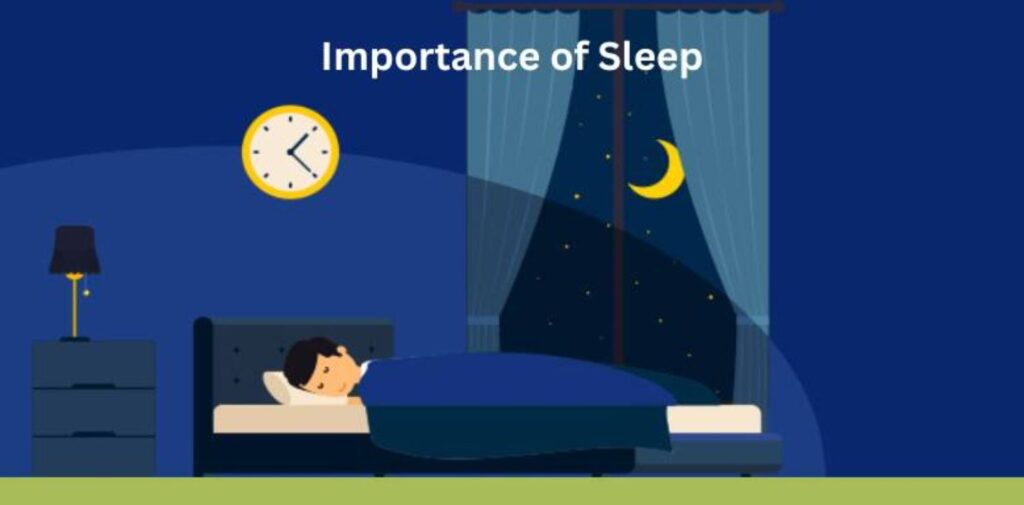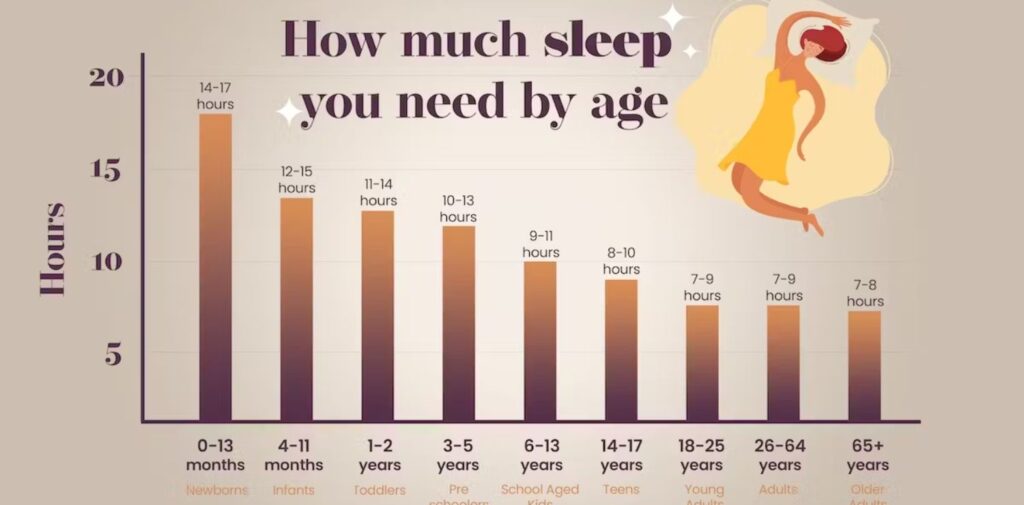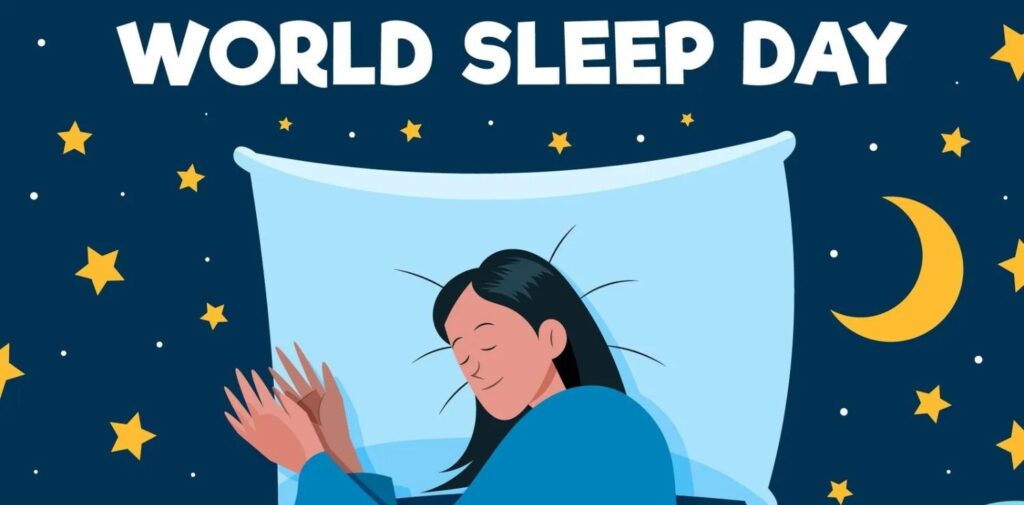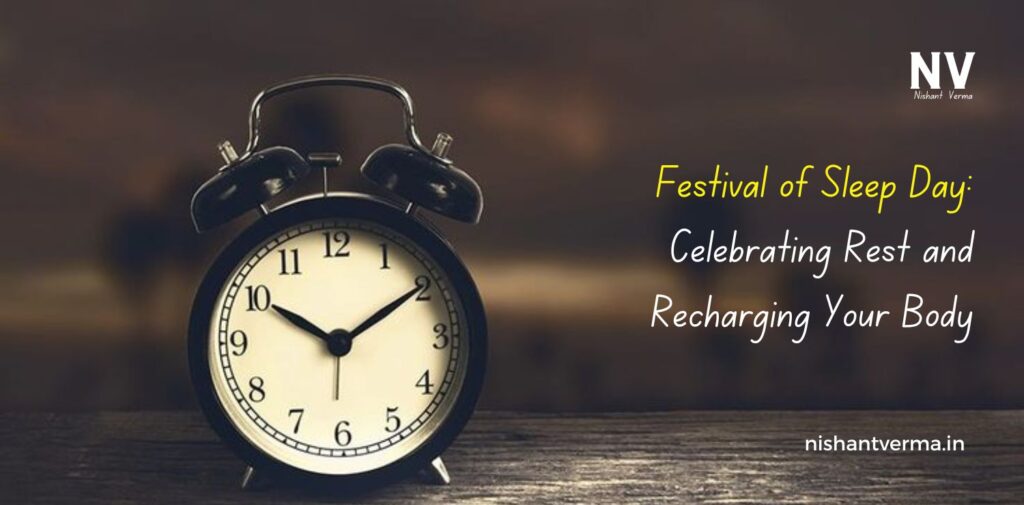Sleep is one of the most important aspects of our well-being, yet it’s often something we overlook or take for granted. In today’s fast-paced world, where work pressures, studies, and constant digital distractions keep us awake, getting enough sleep has become more challenging than ever. To remind us of the importance of sleep and to encourage better sleep habits, we have the Festival of Sleep Day, celebrated on the first Friday of January each year. This day offers a perfect opportunity to pause, reflect, and understand the importance of sleep in our lives.
In this article, we will explore the significance of sleep, how it affects our health, and simple ways to improve your sleep habits, especially for people in India, where the hustle and bustle of daily life often interfere with a good night’s rest.
Why is Sleep Important?
Sleep is not just a time for rest; it is a vital process that helps our body repair, recharge, and function optimally. When we sleep, our brain processes the information we’ve gathered throughout the day, and our body heals itself. It supports physical growth, helps us manage stress, and boosts our immune system. Without proper sleep, our bodies and minds struggle to perform at their best, leading to a range of health problems.
In India, where the pace of life is often fast, and people juggle multiple responsibilities, sleep is frequently sacrificed. People stay up late working, studying, or engaging with digital devices, leading to disrupted sleep patterns. Festival of Sleep Day serves as a reminder to prioritize sleep and take better care of our bodies.

The Connection Between Sleep and Health
Sleep directly impacts our physical and mental health. Here’s how:
- Boosts Memory and Cognitive Function: A good night’s sleep helps your brain process and store information. This is especially important for students and professionals. Lack of sleep can lead to forgetfulness, difficulty concentrating, and a decrease in learning ability.
- Improves Physical Health: Sleep plays a crucial role in repairing the body’s cells, tissues, and muscles. It helps maintain a healthy heart, regulates blood pressure, and supports a strong immune system. Chronic sleep deprivation can lead to high blood pressure, heart disease, and diabetes.
- Enhances Mood and Mental Health: When we don’t sleep enough, it can lead to irritability, stress, and anxiety. Over time, sleep deprivation can contribute to mental health problems like depression. Adequate sleep helps regulate mood and provides emotional stability, which is essential in maintaining a happy and balanced life.
- Promotes Healthy Weight: Sleep affects the hormones that control hunger. Poor sleep can lead to increased cravings for unhealthy foods, which may contribute to weight gain. Studies have shown that people who get enough sleep tend to make healthier food choices.
- Improves Performance: Whether it’s at work, school, or in sports, a well-rested mind and body perform better. Sleep helps restore energy levels, improves decision-making, and enhances problem-solving abilities.

How Much Sleep Do We Need?
The amount of sleep a person needs varies based on age, lifestyle, and individual factors. However, here is a general guideline for different age groups:
- Children (6-12 years): 9-12 hours
- Teenagers (13-18 years): 8-10 hours
- Adults (18-64 years): 7-9 hours
- Older Adults (65+ years): 7-8 hours
In India, many people, especially students and working professionals, tend to get less sleep due to their busy schedules. However, it’s crucial to remember that quality sleep is just as important as the quantity of sleep. A restful night’s sleep helps improve productivity and overall well-being.
Why Do We Struggle with Sleep in India?
In a country like India, with its vast population and diverse lifestyle, sleep problems are becoming more common. There are several reasons why many Indians struggle to get a good night’s sleep:
- Work Pressure: Indians often work long hours, especially in major cities like Mumbai, Bengaluru, and Delhi. The pressures of work, deadlines, and constant connectivity to emails or phone calls can disrupt sleep patterns.
- Late-Night Screen Time: Many people spend long hours on their smartphones, watching television, or using computers before bed. The blue light emitted from screens can interfere with the production of melatonin, the hormone that regulates sleep.
- Stress and Anxiety: The fast-paced lifestyle, financial pressures, and work-related stress can cause anxiety, making it difficult to fall asleep. Indian families also often deal with multiple responsibilities, which can lead to sleepless nights.
- Cultural Factors: Indian culture often values productivity and work over rest. People tend to stay up late socializing, attending events, or completing tasks, which reduces their sleep time.
- Health Issues: Common health problems like sleep apnea, insomnia, and other medical conditions can also affect sleep. These issues are often not addressed properly, leading to poor sleep quality.

How to Celebrate Festival of Sleep Day in India
Festival of Sleep Day is a wonderful opportunity to remind ourselves of the importance of sleep and make a commitment to improve our sleep habits. Here are some simple ways to celebrate this day and improve your sleep:
- Create a Relaxing Bedtime Routine: Set aside at least 30 minutes before bed to relax. This could include reading a book, listening to soft music, practicing meditation, or doing some gentle stretching. Avoid activities that can stimulate your mind, like checking your phone or watching TV.
- Go to Bed Early: Aim to go to bed at the same time every night. Going to bed early ensures that you get enough rest and allows your body to recharge fully.
- Limit Caffeine and Heavy Meals Before Bed: Avoid drinking tea, coffee, or consuming heavy meals at least 4-6 hours before bedtime. These can interfere with your ability to fall asleep and disrupt your sleep cycle.
- Create a Comfortable Sleep Environment: Make sure your bedroom is cool, quiet, and dark. Use comfortable pillows and bedding to support a restful night’s sleep. A calm environment can help you sleep more soundly.
- Turn Off Digital Devices: Avoid using digital screens at least an hour before bedtime. The blue light emitted by phones, laptops, and televisions can disrupt your circadian rhythm and make it harder to fall asleep.
- Practice Mindfulness and Meditation: Mindfulness techniques and deep breathing exercises can help relax your mind and body, making it easier to fall asleep. You can also try yoga or other relaxation techniques that are commonly practiced in India.
- Educate Yourself About Sleep Hygiene: Take time to learn more about good sleep habits. Reading about sleep hygiene can help you understand how to manage sleep disorders and make your sleep routine healthier.
Conclusion
Festival of Sleep Day is an excellent reminder to slow down, recharge, and prioritize our health. In India, where work and family responsibilities often keep us awake, it’s important to remember that sleep is not a luxury—it is a necessity for a healthy and productive life. By making small changes to our routines, such as creating a relaxing bedtime ritual, reducing screen time, and managing stress, we can significantly improve the quality of our sleep.
So, this January, take a break, go to bed early, and give your body the rest it deserves. Celebrating Festival of Sleep Day is an investment in your health, well-being, and productivity. Remember, a well-rested person is not only more energetic but also happier and more focused in everything they do!




